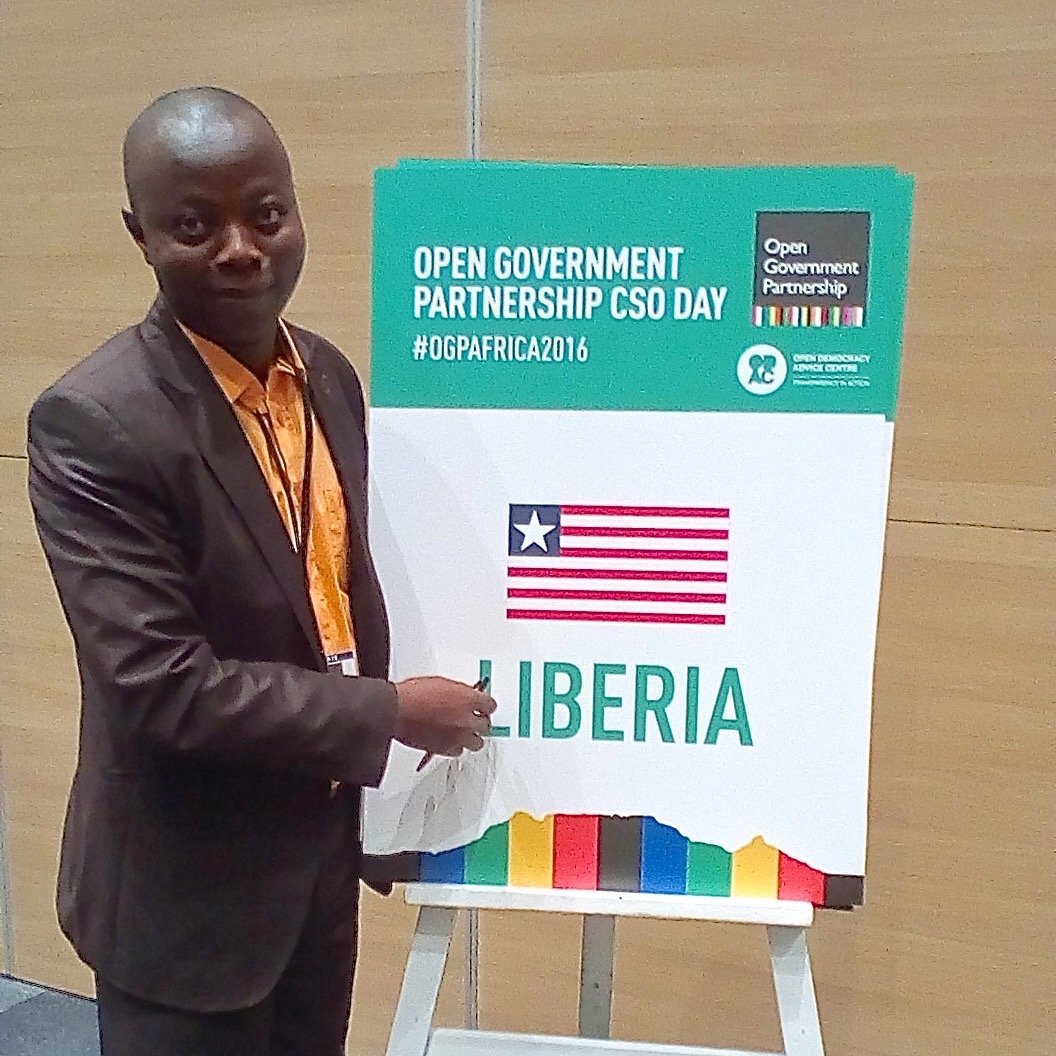NEWS
May 24, 2016

IN BRIEF
By: Francis Lansana, Accountability Lab Liberia Resident. This blog post was originally published by the Open Government Partnership. “Open Government for Sustainable Development in Africa” was the theme for this year’s Open Government Partnership Regional Conference for Africa held in Cape Town, South Africa. The conference brought together over 900 participants from all corners of the world, including a small delegation from Liberia. For us, it was a well-timed moment to reflect on our progress over the past year of implementation of our National Action Plan; share lessons with other reformers in the region and beyond; and begin to think [...]
SHARE
By: Francis Lansana, Accountability Lab Liberia Resident. This blog post was originally published by the Open Government Partnership.
“Open Government for Sustainable Development in Africa” was the theme for this year’s Open Government Partnership Regional Conference for Africa held in Cape Town, South Africa. The conference brought together over 900 participants from all corners of the world, including a small delegation from Liberia. For us, it was a well-timed moment to reflect on our progress over the past year of implementation of our National Action Plan; share lessons with other reformers in the region and beyond; and begin to think about next steps to meaningfully translate open government commitments into open governance for citizens. Here are some things I’m thinking about now I’ve returned from Cape Town:
- Open government is better when it is precise, not nebulous. Countries working towards openness make the most progress where goals are concrete, citizen-focused and action oriented. When objectives are overly ambitious, milestones will not be met; and action plans should focus on areas where impacts can be easily seen. In Liberia, for example, we are trying to mobilize around the Freedom of Information law in this way. Rather than broadly suggesting it would support the law- the government has committed specifically to appointing and training of public information officers, for example; and our partners iLab Liberia have built out an online FoI portal so citizens can make requests through the web. So far, 50+ Public Information Officers (PIOs) have been recruited and trained and 1500+ people have benefited from this portal. In this way, concrete and meaningful changes are beginning to be seen in terms of the process of obtaining information from government.
- Inclusivity is essential. One of the core objectives of the OGP is not to leave anyone behind. As such governments must fashion development agendas and information sharing strategies that can be understood and accessed even by traditionally excluded populations. In Cape Town, I learned about how Tanzania has online open data tools (here and here) but is going well beyond this. The government is reaching out to schools in low-income areas to make sure teachers have access to quality instructional materials around accountability, so even those not online can learn the basics. In Liberia, we’re also working with the government on the offline components of the action plan—through murals, films, citizen journalism initiatives, sports initiatives and radio shows, many of which are also youth focused. And we’re making sure we reach groups outside Monrovia- targeting youth and women in particular- who are incredibly important constituencies for open government.
- We are moving from consultation to co-creation. OGP is unique in the emphasis it places on civil society engagement. Liberia’s first OGP National Action Plan proved challenging because while civil society was involved, the commitments were not co-created. The second plan has been very different—we have a committed and energetic minister as a counterpart, an active group of organizations involved, and a cadence to what we do, with regular meetings, updates and check-ins. There is a sense that in Liberia, the OGP process is moving from consultation with civil society to real co-creation, and that is exciting. We still have further to go—both to push the government harder and to ensure our own collective civil society efforts, but I’m encouraged. Now, I’d like to think about how we can get the private sector more involved too.
- Experience sharing is key. Every society has its own unique circumstances, opportunities and challenges, and no one country has the answers to opening government. Indeed, the conditions across Africa vary hugely. But it was incredibly valuable in Cape Town to learn from other open government enthusiasts about why, how and when commitments are being met, and what we in Liberia can learn from others’ experiences. For example, I learned about how the Web Foundation is working with the government and CSOs to bridge information gaps in Cote D’voire. I also learned how the city of Cape Town is using the OGP platform to share data about the city here so citizens can better navigate information and services at the municipal level. And I learned that the best way to keep up with these lessons is through the amazing OGP Explorer– which has huge amounts of data on commitments, progress and tactics used by countries all over the world as part of the OGP.
I’ve been back in Liberia for a couple of weeks now, and I’m filled with a new sense of energy around the open government agenda. One concrete step we at the Accountability Lab are taking soon is to set up an OpenGov Hub in Monrovia, the first-of-its-kind space for collaboration around open government in West Africa through co-working, community and innovation. Going forwards we hope this can be a place where, just as I learned in South Africa, we can further develop clear ideas, bring in new stakeholders, co-create outcomes and share experiences. Who knows, maybe in a few years we can even host the OGP Africa Regional Conference
